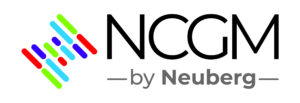Hereditary Cancer
About 5 to 10 percent of cancers are thought to be hereditary. In these cases, an individual inherits a copy of a growth control gene with a mutation from one parent, and a working copy of the same gene from the other parent. The gene with the mutation is also called a “cancer susceptibility gene.” Since this cancer susceptibility gene is inherited, it is found in every cell of the body, but the working copy of the gene keeps each cell working properly. However, if the working copy of the gene in a cell becomes damaged by a mutation, that cell can lose its growth control and become cancerous. Thus, individuals who inherit a cancer susceptibility gene have a much greater chance for developing certain cancers in their lifetime. However, not everyone with an inherited cancer susceptibility gene will develop cancer.
In a hereditary cancer syndrome, certain patterns of cancer may be seen within families. These patterns include having several close family members (such as a mother, daughter, and sister) with the same type of cancer, developing cancer at an early age, or having two or more types of cancer develop in the same person.
For More Details, Download Brochure Here
1. BRCA1/2 By NGS
Hereditary breast and ovarian cancer syndrome (HBOS) is caused by germline mutations in BRCA1 or BRCA2 genes, and is characterized by an increased risk for breast cancer, ovarian cancer, prostate cancer and pancreatic cancer. This test looks specifically for mutations in BRCA1 and BRCA2 genes by Next Generation Sequencing (NGS).
3. Inherited Cancer Panel
It is a 149 gene panel and it is ideal for patients with a clinical suspicion of inherited susceptibility to cancer. This panel is designed to detect heritable germline mutations and should not be used for the detection of somatic mutations in tumor tissue.
